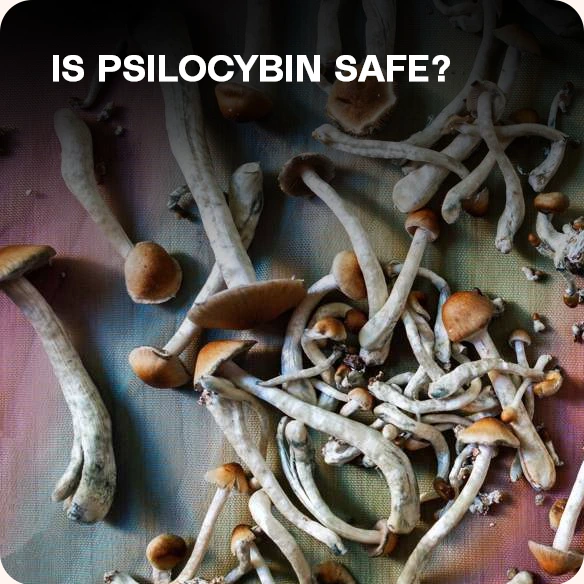Microdosing and Meditation are a good pair. Meditation builds calm, focus, and emotional balance, while microdosing psilocybin may deepen clarity, awareness, and resilience.
Together, they can improve productivity, enhance mindfulness, support mental health, and foster overall well-being when practiced responsibly.
Meditation is an ancient practice that improves mental well-being and emotional balance by training the mind to focus and stay present.
Both meditation and microdosing have gained attention over the past two decades for inducing altered states of consciousness and enhancing well-being.
There is growing scientific interest in these practices, and recent research highlights their beneficial effects on mental health and psychological well-being.
This article explains meditation, lists 10 reasons to meditate, explores different meditation methods, and discusses how microdosing psilocybin can complement meditation.
Whether you are a beginner or looking to deepen your practice, this guide offers practical insights.
Also, see our guide on how to microdose.
Key Takeaways
- Meditation builds mindfulness and awareness by focusing on the present moment.
- People meditate to reduce stress, improve mental and physical health, and understand emotions better.
- Beginners should keep sessions short, be patient, and try various techniques to find what works best.
What is Meditation?
Meditation trains the mind to focus and achieve calmness by concentrating on the breath or other objects.
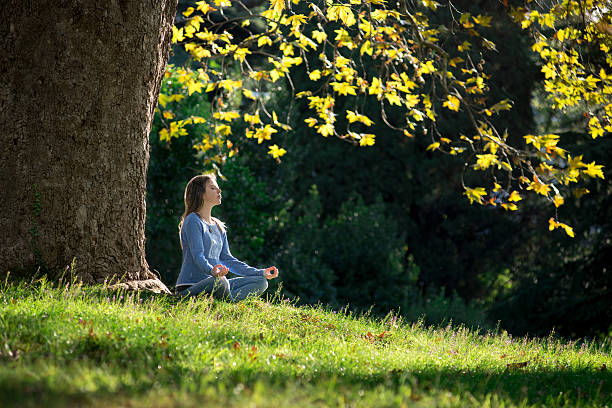
Focused attention meditation and mindfulness meditation are two meditation forms and mindfulness techniques commonly studied for their neural correlates and effects on the brain.
Focused attention meditation involves maintaining concentration on a single object, like the breath, to build mindfulness and present-moment awareness.
Mindfulness meditation teaches noticing when the mind wanders and gently returning attention to the breath, enhancing focus and presence without judgment.
Although meditation looks like quiet sitting, it triggers brain processes and neural correlates that promote calm and clarity.
Subjective effects range from deep calm to subtle awareness shifts.
To complement mindfulness and improve focus, Calm Microdosing Capsules and Focus Microdosing Capsules can support mental balance and concentration during meditation practice.
What are the 10 Reasons to Meditate for Better Mental Health Outcomes?
Here are ten reasons to start meditating:
- Understand Your Pain: Meditation enhances awareness of physical and emotional pain, enabling you to face it with greater clarity and kindness.
- Lower Stress: It’s a natural stress reliever, helping you feel calmer and more at ease in your daily routine.
- Connect Better: By promoting mindfulness and empathy, meditation deepens your relationships and improves communication with others.
- Improve Focus: It sharpens your ability to concentrate, helping you stay focused and productive
- Quiet Your Mind: Meditation helps reduce mental clutter, leading to a calmer and more peaceful mind.
- Boost Emotional Health: It helps lift your mood, promoting a more balanced and positive mindset.
- Enhance Self-Awareness: Meditation provides insight into your thoughts and emotions, fostering greater self-understanding and growth.
- Sleep Better: It relaxes your mind and body, making it easier to fall asleep and enjoy better-quality rest.
- Strengthen Your Immunity: Regular meditation supports your immune system, helping your body resist illness and recover faster.
- Build Mental Resilience: It helps you develop the mental strength to handle life’s challenges and bounce back from setbacks.
These practices can have beneficial effects on both the mind and body, supporting overall well-being. Choosing the right tool for your intention matters.
For steady focus during sessions, try Focus Capsules; while reflective or emotionally gentle days may align better with Calm Capsules.
For more tips, check out our blog on microdosing vs macrodosing psilocybin.
Curious when a small dose makes more sense than a full journey? Read about Microdosingvs.Macrodosing Psilocybin, including use cases, pros/cons, and safety notes.
What Are the Different Types of Meditation, Including Mindfulness Meditation?
Meditation forms vary, offering unique benefits and techniques:
- Body-centered meditation: focus on physical sensations.
- Contemplation: think about a question or concept.
- Emotion-centered meditation: focus on emotions like kindness.
- Mantra meditation: repeat a word or phrase.
- Meditation with movement: breathing exercises or walking.
- Mindfulness meditation: stay aware of the present moment.
- Visual-based meditation: focus on a visual object.
Meditation research often involves mindfulness training and the use of assessment tools like the Five Facet Mindfulness Questionnaire (FFMQ) to measure different facets of mindfulness and evaluate outcomes.
Experienced meditators are frequently studied to understand the effects of various meditation forms and their impact on psychological and neurobiological processes.
Focused attention (FA) and open awareness (OA) are common meditation forms studied for their effects on brain connectivity, especially the default mode network (DMN).
These help tailor meditation to your goals like relaxation, focus, or emotional exploration.
What is Microdosing?
Microdosing involves taking very small, sub-hallucinogenic doses of psychedelics like LSD or psilocybin, typically one-tenth to one-twentieth of a recreational dose.
Microdosing specifically refers to ingesting a psychedelic substance at levels that do not produce hallucinogenic effects, in contrast to the acute effects and profound alterations in consciousness observed with high doses of psychedelic substances.
Microdosing has gained attention for improving mental health outcomes like depression, anxiety disorders, and PTSD.
Unlike traditional psychedelic experiences, microdosing does not produce intense visual or sensory effects, but many people report subtle improvements such as:
- Enhanced mood and emotional balance
- Increased focus and motivation
- Greater creativity and clarity of thought
Early research suggests combining microdosing with meditation can amplify mental health benefits and deepen meditative states.
Studies often involve healthy participants and explore how psychedelic exposure and psychedelic induced experiences can complement meditation.
Can Microdosing Psilocybin Improve Meditation?
Yes, microdosing psilocybin does improve meditation. The 2024 study “Psilocybin Enhances Insightfulness in Meditation” found that microdosing increases focus, emotional clarity, and self-awareness.
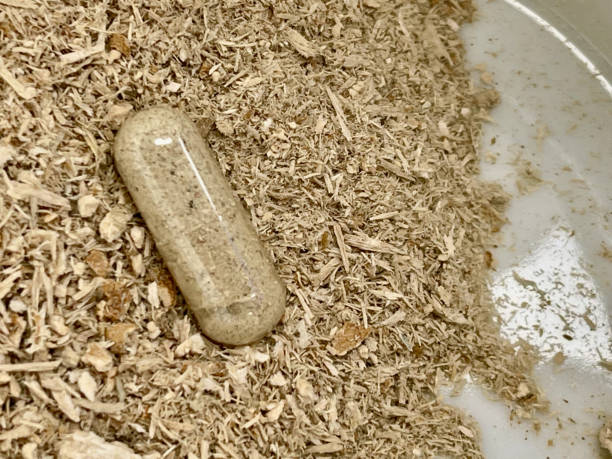
Research on psychedelic supplements, such as psilocybin, has shown they can modulate brain connectivity, particularly in networks related to self-awareness and mood.
The researchers used brain imaging during meditation to compare participants who took psilocybin with those who took a placebo.
The results showed that the group taking psilocybin experienced greater awareness and insightfulness during meditation, whereas the placebo group reported a less profound meditation experience.
Studies led by researchers like Carhart-Harris have linked changes in the default mode network to experiences of ego dissolution and enhanced insight during meditation.
Clinical trials have demonstrated therapeutic benefits of combining meditation with microdosing, including reductions in depressive symptoms and mood disorders.
In short, microdosing psilocybin before meditating will make it easier to focus, feel emotionally connected, and deepen your experience.
Participants sometimes report emotional breakthroughs and psychedelic-induced mystical experiences, which can contribute to long-term improvements in mental illness.
These outcomes are thought to be related to specific neural correlates observed during psychedelic-induced experiences and meditation.
The psychedelic experience can resemble advanced meditative states, facilitating profound personal insights.
For meditation days focused on grounded presence and reduced reactivity, a consistency-first option like Calm Microdosing Capsules can help you keep dosing steady while you observe effects.
What is the Science Behind Meditation and Microdosing?
Meditation practices and microdosing classic psychedelics like LSD and psilocybin influence brain regions involved in attention, emotion regulation, and self-awareness.

Both mindfulness meditation and these psychedelic substances modulate the default mode network (DMN), a brain network responsible for self-referential thinking and mind-wandering.
Research by Carhart-Harris highlights how psychedelics affect the medial prefrontal cortex, altering self-referential processing and self-consciousness.
Overactivity of the DMN is linked to psychiatric disorders such as depression, anxiety disorders, and post-traumatic stress disorder (PTSD), characterized by rumination and negative self-talk.
Meditation reduces DMN activity, enhancing focus, emotional regulation, and well-being, while psychedelics disrupt typical DMN patterns, enabling new perspectives and ego dissolution.
Both practices produce profound alterations in self-awareness and brain connectivity, supported by scientific research and qualitative analysis.
Combining meditation with microdosing produces synergistic effects that improve mental health outcomes, creativity, and emotional well-being.
Default Mode Network
The default mode network (DMN) activates during rest and self-referential processing like introspection and daydreaming.
Excessive DMN activity links to mental disorders. Meditation decreases DMN activity, shifting attention from self-focused thoughts to the present moment.
Psychedelics like psilocybin disrupt DMN connectivity, leading to altered self-awareness and fresh perspectives.
Altered States of Consciousness
Altered states of consciousness involve significant changes in perception, thought, and emotion.
Both meditation and psychedelics induce these states, characterized by heightened self-awareness, creative insights, and emotional breakthroughs.
These experiences foster lasting positive changes in mental health.
Combining meditation with microdosing offers a gentle route to these beneficial states without intense psychedelic effects, enhancing mindfulness, emotional healing, and overall mental health.
What Are Classic Hallucinogens and Lysergic Acid Diethylamide (LSD)?
Classic hallucinogens are serotonergic psychedelics—like LSD, psilocybin, mescaline, and DMT—that profoundly alter perception, mood, and cognition.
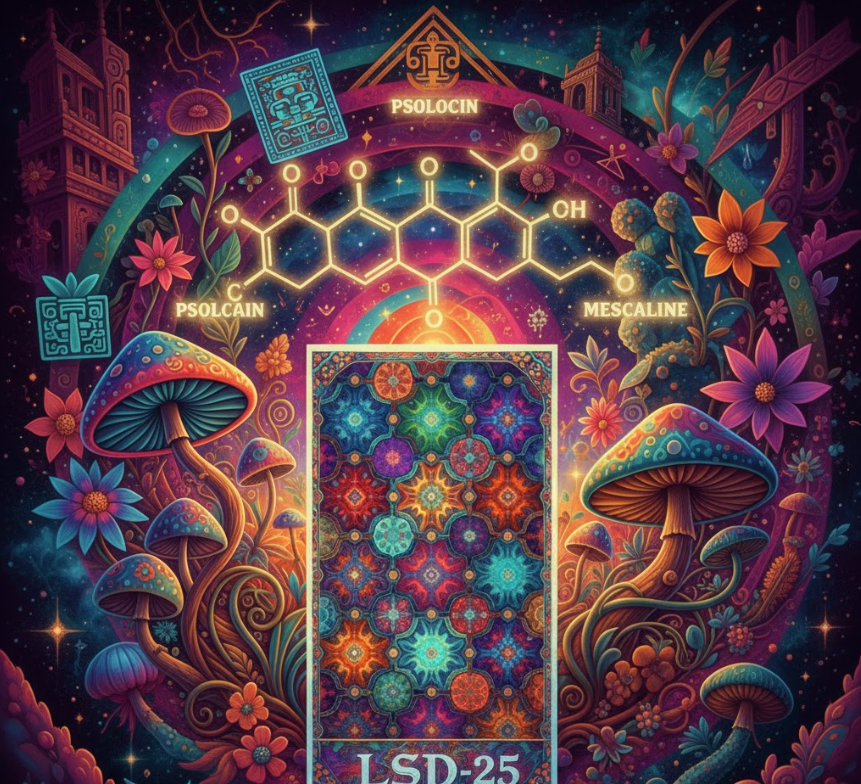
LSD is a particularly potent 5-HT2A receptor agonist, capable of producing vivid sensory changes, shifts in self-awareness, and intensified emotions even at tiny doses.
Classic hallucinogens, such as lysergic acid diethylamide (LSD), have long been recognized for their ability to profoundly alter states of consciousness and influence psychological functioning.
LSD, in particular, is a powerful psychedelic substance that acts as a serotonin receptor agonist, leading to significant changes in perception, mood, and cognition.
Over the past two decades, scientific research has renewed interest in the therapeutic potential of classic hallucinogens for improving mental health outcomes, especially in the context of anxiety disorders, depressive symptoms, and post-traumatic stress disorder (PTSD).
Recent clinical trials and systematic reviews have reported promising findings for the use of LSD and other classic hallucinogens in treating mental health conditions that are often resistant to conventional therapies.
For example, studies have shown that LSD can help reduce symptoms of treatment-resistant depression and anxiety, while also supporting emotional breakthroughs and positive changes in psychological functioning.
These therapeutic benefits are thought to be linked to LSD’s effects on brain regions such as the medial prefrontal cortex and the default mode network (DMN)—areas involved in self-referential thinking and rumination.
Functional magnetic resonance imaging (fMRI) studies reveal that LSD disrupts typical default mode network activity, leading to altered self-consciousness and experiences of ego dissolution.
These subjective effects often mirror those achieved through advanced mindfulness meditation and mindfulness-based stress reduction (MBSR), which also decrease DMN activity and foster present-moment awareness and non-judgmental acceptance.
Mindfulness training has been shown to increase trait mindfulness, helping individuals remain grounded in the present and less caught up in negative thought patterns.
The combination of LSD with mindfulness practices, such as mindfulness-based cognitive therapy (MBCT), is an area of growing scientific interest.
Early research suggests that integrating classic hallucinogens with meditation practices may produce synergistic effects, enhancing therapeutic outcomes and supporting long-term mental health improvements.
Notably, psychedelic-induced mystical experiences—characterized by a sense of unity, transcendence, and deep personal meaning—are associated with lasting reductions in depressive symptoms and anxiety, as well as increased psychological well-being.
High-dose psychedelics, including LSD, can produce profound alterations in consciousness, but even at lower doses, the combination with mindfulness techniques may amplify beneficial effects while minimizing risks.
As research continues, future studies will be essential to fully understand the neural correlates and therapeutic potential of combining classic hallucinogens with mindfulness meditation and related practices.
In summary, classic hallucinogens like LSD offer promising avenues for enhancing mental health, particularly when paired with mindfulness-based approaches.
Ongoing and future research will help clarify the most effective ways to harness these synergistic effects for the treatment of anxiety disorders, depressive symptoms, PTSD, and other mental health challenges.
For those interested in exploring gentle, sub-perceptual approaches to support focus, calm, and emotional balance, Microdosify’s microdosing capsules—such as Calm and Focus—offer a safe, structured way to integrate mindfulness-based wellness into daily life.
How to Begin Meditation Practices?
1. Find a Quiet and Comfortable Place
Choose a peaceful spot free from distractions. Use cushions or mats for comfort and add personal items like candles or plants to create a calming atmosphere.
2. Get in a Comfortable Position
Sit cross-legged, in a chair, or lie down—whichever feels relaxed and supports focus.
3. Focus on Your Breath
Notice each inhale and exhale, letting thoughts pass without judgment. Counting breaths or imagining waves can help maintain focus.
4. Notice and Let Go of Thoughts
Acknowledge wandering thoughts without frustration and gently return attention to the breath.
5. Bring Your Attention Back to Your Breath
Repeatedly refocus on breathing to build presence and emotional balance.
If microdosing psilocybin, maintain your usual meditation routine, focusing on breath and allowing thoughts to flow naturally.
How Much Should I Meditate?
How long you should meditate depends on your goals and daily routine, but consistency is key. Even short, regular sessions can bring benefits over time. While some meditate daily, others may find shorter, more frequent moments of meditation throughout the day more effective. For improving mental health, aim for 10 to 20 minutes of meditation each day.
Beginners can start with just a few sessions a week, gradually increasing time and frequency as they get more comfortable.
Remember, meditation should fit into your life naturally. The goal is to make it a sustainable habit that enhances your well-being, not something that adds more stress.
Recent research by neuroscientist Amishi Jha shows that 12 minutes of meditation, five days a week, can improve focus and attention. Even just a few minutes a day can make a big difference.
Is Meditation a Religious Practice?
Yes and no. Meditation has roots in many religious traditions, but you don’t need to be religious to meditate. Meditation can be adapted to fit any belief system or none at all.
Here’s a closer look at how meditation is connected to different religious and non-religious traditions:
- Buddhist Meditation: Originating in Buddhism, meditation is seen both as a religious and philosophical practice. Theravadan meditation, common in Southeast Asia (India, Thailand), focuses on mindfulness and inner reflection. Zen Buddhist meditation, which started in China and evolved in Japan, is another popular form. Tibetan Buddhist tantric meditation, from Tibet, incorporates visualizations and mantras.
- Christian Meditation: In Christianity, meditation often takes the form of contemplation, focusing deeply on religious concepts, questions, or prayer. Many consider praying to be a form of meditation.
- Guided Meditation: This is a nonreligious form commonly used in therapy, group support, or personal development. A trusted guide leads participants to focus on specific aspects of their thoughts or emotions.
- Osho Meditation: Rooted in Hinduism, Osho or dynamic meditation uses intense, forceful breathing exercises to release emotions and find clarity.
- Sufi Meditation: In Sufism, a branch of Islam, meditation deepens spiritual connection through prayer, chants, or silent contemplation.
- Taoist Meditation: Originating in China, Taoism blends harmony with nature. Taoism meditation practices focus on breathing and aligning with the Tao, or the natural order.
- Transcendental Meditation: This practice from India involves repeating a mantra—either silently or out loud—helping to clear the mind and achieve a relaxed state.
- Yoga: A physical and mental practice from India, yoga combines meditation with movement. Though rooted in Hinduism, it’s now practiced both religiously and nonreligiously around the world.
Whether practiced for spiritual growth or mental health, meditation is adaptable to anyone’s needs and lifestyle.
What Are the Future Research Directions?
Future research will clarify how combining meditation and microdosing affects psychological functioning, including anxiety, depression, PTSD, cognition, and creativity.
Neuroimaging techniques like functional magnetic resonance imaging (fMRI) can reveal brain activity changes and altered states of consciousness.
Scientific research, including systematic review, systematic review and meta-analysis, and review and meta analysis, plays a crucial role in synthesizing findings and guiding future directions in this field.
Systematic reviews and meta-analyses will summarize findings and identify knowledge gaps, guiding safe, effective integration of meditation and microdosing for mental health benefits, emotional breakthroughs, and enhanced self-awareness.
Conclusion
Meditation improves mental health, emotional balance, and self-awareness by reducing stress and enhancing focus. Regular practice fosters clarity, compassion, and personal growth.
When combined with intentional microdosing, meditation can become even more transformative. Microdosing psilocybin deepens mindfulness, enhances focus, and supports emotional healing by fostering a stronger connection between mind and body.
For those seeking to enrich their meditation practice, Calm Microdosing Capsules promote relaxation and emotional balance, while Focus Microdosing Capsules help sharpen awareness and sustain attention during mindfulness sessions.
To explore how to combine microdosing with meditation safely and effectively, consider booking a 1-Hour Coaching Call with a certified Microdosify Coach. Personalized guidance can help you:
- Integrate microdosing into your mindfulness routine
- Establish safe and effective dosing patterns
- Deepen focus, calm, and emotional clarity through guided practice
Begin your mindfulness journey with intention and balance — explore Microdosify’s microdosing capsules and coaching support to experience calm focus and inner clarity every day.
Sources:
- Can Psychedelic Use Benefit Meditation Practice? Examining Individual, Psychedelic, and Meditation-Related Factors by (February 2025) Zishan Jiwani, Simon B. Goldberg, Jack Stroud, Jacob Young, John Curtin, John D. Dunne, Otto Simonsson, Christian A. Webb, Robin Carhart-Harris & Marco Schlosser
- Psilocybin Enhances Insightfulness in Meditation by (March 2024) Berit Singer, Daniel Meling, Matthias Hirsch-Hoffmann, Lars Michels, Michael Kometer, Lukasz Smigielski, Dario Dornbierer, Erich Seifritz, Franz X. Vollenweider & Milan Scheidegger.
- Psilocybin-assisted mindfulness training modulates self-consciousness and brain default mode network connectivity with lasting effects by (August 2019) Lukasz Smigielski, Milan Scheidegger, Michael Kometer & Franz X. Vollenweider.
- Neural correlates of the psychedelic state as determined by fMRI studies with psilocybin by (February 2012) Robin L. Carhart-Harris, David Erritzoe, Tim M. Williams, Jonathan M. Stone, Luke J. Reed, et al., & David J. Nutt.
Frequently Asked Questions (FAQs)
What is meditation?
Meditation is a practice focusing the mind, often on breath, to achieve calmness and clarity.
Can beginners practice meditation?
Yes, beginners should start with short sessions and try different techniques to find what suits them.
How can I improve focus during meditation?
Focus on your breath, notice distractions without judgment, and gently return attention to breathing. Developing trait mindfulness helps maintain focus.
How does microdosing psilocybin enhance meditation?
Microdosing psilocybin improves focus, emotional clarity, and self-awareness during meditation, deepening the experience.
How long should I meditate each day?
Start with 10 to 20 minutes daily, increasing gradually as comfortable.
Do I need special equipment for meditation?
No special equipment is required; a quiet space and comfortable seating suffice.
How Much Should I Meditate?
Consistency matters more than duration. Start with 10 to 20 minutes daily, gradually increasing as comfortable. Meditation training programs can help develop a steady mindfulness practice and long-term mental health benefits.
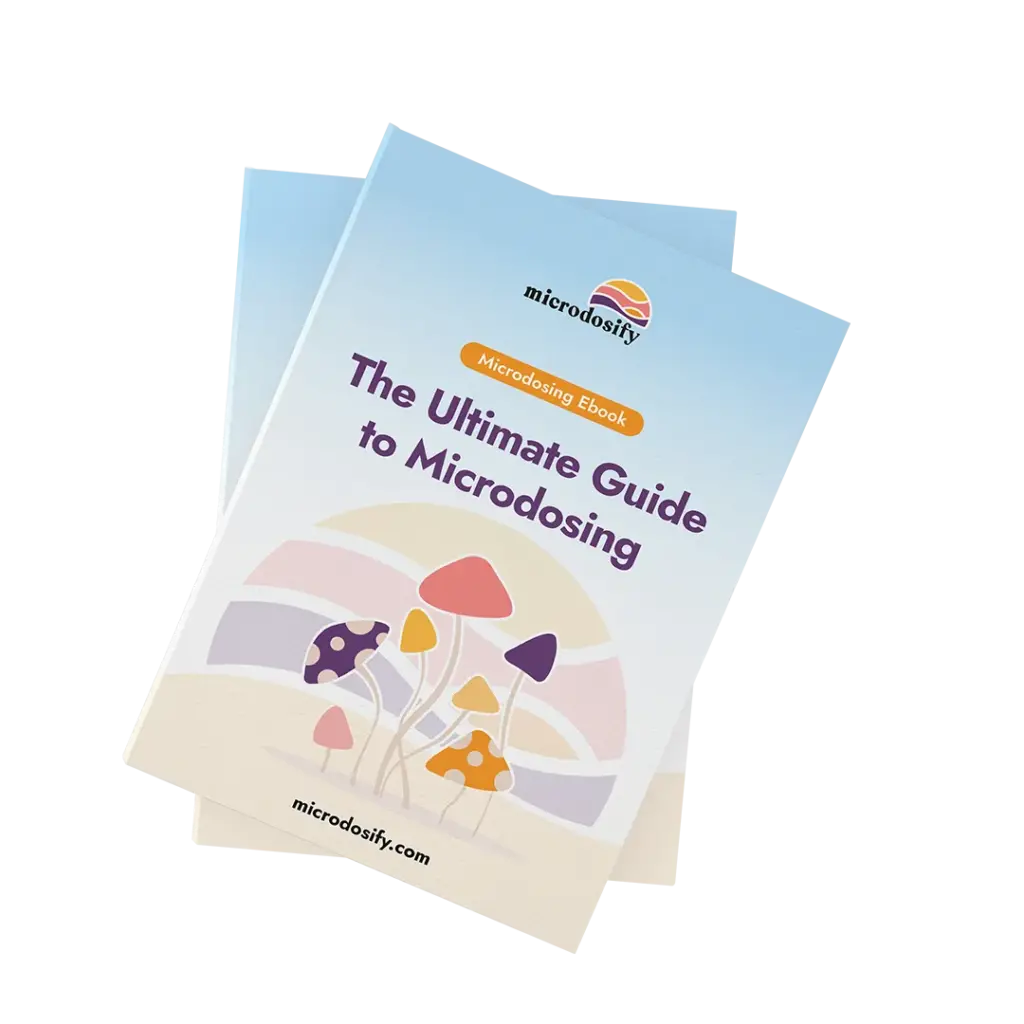


 16 min read
16 min read
